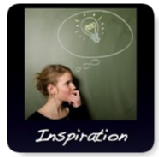All entries for Thursday 30 July 2009
July 30, 2009
Teaching as mediating learning, Diana Laurillard
This is the first part of my notes on reading Laurillard's 1993 book Rethinking University Teaching. This article records my own personal, non-peer-reviewed response.
In the first chapter of her influential 1993 book Rethinking University Teaching1, Diana Laurillard rejects a simplistic situated learning approach. She argues that the role of the university is to teach knowledge domains that are beyond that which can be experienced within the everyday socio-cognitive situation, and which take a considerable amount of work to experience in any way (and by implication that's why we need universities). It is then a task of creating learning situations, contexts (social, conceptual, technical), that are appropriate to the subject domain and the participants.
The university teacher is seen as giving the student access to complex knowledge domains that may, at least initially, be well beyond ordinary experience. The academic teacher prepares the student to gain priveliged and guided access to abstract, rare, sensitive, complex domains, and then sustains the student as they make sense within those domains, as they experiment with the elements of the domain (whether those elements are physical or conceptual).
Laurillard is keen to demonstrate that this is not contrary to more sophisticated socio-cognitive situated learning theory, citing Vygotsky (although we should recall the politics behind the Soviet attitude towards the relationship between academia and situated learning). She qoutes Roger Säljö:
In scientific texts, new 'versions of the world', or fragments of such, are offered, and the act of learning through reading may thus be seen as containing an implicit commitment to transcend assumptions vis-à-vis reality for which we have a firm basis in terms of our own previous daily experiences. Our knowledge gained by personal experience and therefore ‘true’ in our everyday realm of life, may in our culture have to yield to an alternative mode of conceptualization that links with a scientific ‘version of the world’.2
How does this relate to the design thinking approach? Are concepts equivalent to lo-fi prototypes? How do we go from such lo-fi prototypes to disruptive real-world inspiration generating experiences?
How might this fit with Deleuze and Guattari's distinction between science, art and philosophy?3
______________________
1Laurillard, D. Rethinking University Teaching: a framework for the effective use of educational technology, Routledge, 1993.
2Säljö, R. Learning from Reading in Marton F. Hounsell D. J. and Entwistle N.J. (eds) The Experience of Learning, Scottish Academic Press, 1984.
3Deleuze, G & Guattari, F. What is Philosophy?, Columbia University Press, 1996.
 Robert O'Toole
Robert O'Toole

 Please wait - comments are loading
Please wait - comments are loading



